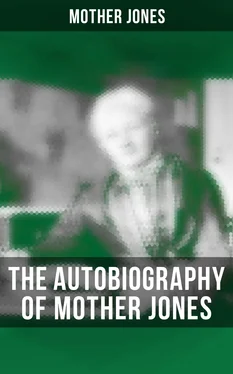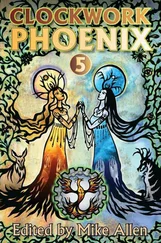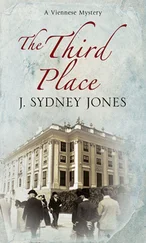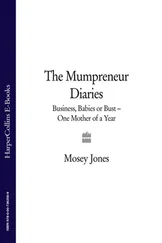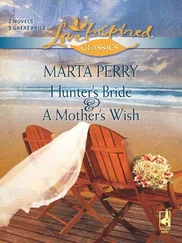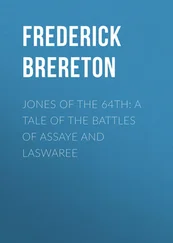The United Mine Workers had tried to organize Kelly Creek on the Kanawah River but without results. Mr. Burke and Tom Lewis, members of the board of the United Mine Workers, decided to go look the field over for themselves. They took the train one night for Kelly Creek. The train came to a high trestle over a steep canyon. Under some pretext all the passengers except the two union officials were transferred to another coach, the coach uncoupled and pulled across the trestle. The officials were left on the trestle in the stalled car. They had to crawl on their hands and knees along the tracks. Pitch blackness was below them. The trestle was a one-way track. Just as they got to end of the trestle, a train thundered by.
When I heard of the coal company's efforts to kill the union officers, I decided I myself must go to Kelly Creek and rouse those slaves. I took a nineteen-year-old boy, Ben Davis, with me. We walked on the east bank of the Kanawah River on which Kelly Creek is situated. Before daylight one morning, at a point opposite Kelly Creek, we forded the river.
It was just dawn when I knocked at the door of a store run by a man by the name of Marshall. I told him what I had come for. He was friendly. He took me in a little back room where he gave me breakfast. He said if anyone saw him giving food to Mother Jones he would lose his store privilege. He told me how to get my bills announcing my meeting into the mines by noon. But all the time he was frightened and kept looking out the little window.
Late that night a group of miners gathered about a mile from town between the boulders. We could not see one another's faces in the darkness. By the light of an old lantern I gave them the pledge.
The next day, forty men were discharged, blacklisted. There had been spies among the men the night before. The following night we organized another group and they were all discharged. This started the fight. Mr. Marshall, the grocery man, got courageous. He rented me his store and I began holding meetings there. The general manager for the mines came over from Columbus and he held a meeting, too.
"Shame," he said, "to be led away by an old woman!"
"Hurrah for Mother Jones!" shouted the miners.
The following Sunday I held a meeting in the woods. The general manager, Mr. Jack Rowen, came down from Columbus on his special car. I organized a parade of the men that Sunday. We had every miner with us. We stood in front of the company's hotel and yelled for the general manager to come out. He did not appear. Two of the company's lap dogs were on the porch. One of them said, "I'd like to hang that old woman to a tree."
"Yes," said the other, "and I'd like to pull the rope."
On we marched to our meeting place under the trees. Over a thousand people came and the two lap dogs came sniveling along too. I stood up to speak and I put my back to a big tree and pointing to the curs, I said, "You said that you would like to hang this old woman to a tree! Well, here's the old woman and here's the tree. Bring along your rope and hang her!"
And so the union was organized in Kelly Creek. I do not know whether the men have held the gains they wrested from the company. Taking men into the union is just the kindergarten of their education and every force is against their further education. Men who live up those lonely creeks have only the mine owners' Y. M. C. As, the mine owners' preachers and teachers, the mine owners' doctors and newspapers to look to for their ideas. So they don't get many.
CHAPTER VII
A HUMAN JUDGE
Table of Contents
In June of 1902 I was holding a meeting of the bituminous miners of Clarksburg, West Virginia. I was talking on the strike question, for what else among miners should one be talking of? Nine organizers sat under a tree near by. A United States marshal notified them to tell me that I was under arrest. One of them came up to the platform.
"Mother," said he, "you're under arrest. They've got an injunction against your speaking."
I looked over at the United States marshal and I said, "I will be right with you. Wait till I run down." I went on speaking till I had finished. Then I said, "Goodbye, boys; I'm under arrest. I may have to go to jail. I may not see you for a long time. Keep up this fight! Don't surrender! Pay no attention to the injunction machine at Parkersburg. The Federal judge is a scab anyhow. While you starve he plays golf. While you serve humanity, he serves injunctions for the money powers."
That night several of the organizers and myself were taken to Parkersburg, a distance of eighty-four miles. Five deputy marshals went with the men, and a nephew of the United States marshal, a nice lad, took charge of me. On the train I got the lad very sympathetic to the cause of the miners. When we got off the train, the boys and the five marshals started off in one direction and we in the other.
"My boy," I said to my guard, "look, we are going in the wrong direction."
"No, mother," he said.
"Then they are going in the wrong direction lad."
"No, mother. You are going to a hotel. They are going to jail."
"Lad," said I, stopping where we were, "am I under arrest?"
"You are, mother."
"Then l am going to jail with my boys." I turned square around. "Did you ever hear of Mother Jones going to a hotel while her boys were in jail?"
I quickly followed the boys and went to jail with them. But the jailer and his wife would not put me in a regular cell. "Mother," they said, "you're our guest." And they treated me as a member of the family, getting out the best of everything and "plumping me" as they called feeding me. I got a real good rest while I was with them.
We were taken to the Federal court for trial We had violated something they called an injunction. Whatever the bosses did not want the miners to do they got out an injunction against doing it. The company put a woman on the stand. She testified that I had told the miners to go into the mines and throw out the scabs. She was a poor skinny woman with scared eyes and she wore her best dress, as if she were in church. I looked at the miserable slave of the coal company and I felt sorry for her: sorry that there was a creature so low who would perjure herself for a handful of coppers.
I was put on the stand and the judge asked me if I gave that advice to the miners, told them to use violence.
"You know, sir," said I, "that it would be suicidal for me to make such a statement in public. I am more careful than that. You've been on the bench forty years, have you not, judge?"
"Yes, I have that," said he.
"And in forty years you learn to discern between a lie and the truth, judge?"
The prosecuting attorney jumped to his feet and shaking his finger at me, he said "Your honor, there is the most dangerous woman in the country today. She called your honor a scab. But I will recommend mercy of the court if she will consent to leave the state and never return."
"I didn't come into the court asking mercy," I said, "but I came here looking for justice. And I will not leave this state so long as there is a single little child that asks me to stay and fight his battle for bread."
The judge said, "Did you call me a scab?"
"I certainly did, judge."
He said, "How came you to call me a scab?"
"When you had me arrested I was only talking about the constitution, speaking to a lot of men about life and liberty and a chance for happiness; to men who had been robbed for years by their masters, who had been made industrial slaves. I was thinking of the immortal Lincoln. And it occurred to me that I had read in the papers that when Lincoln made the appointment of Federal judge to this bench, he did not designate senior or junior. You and your father bore the same initials. Your father was away when the appointment came. You took the appointment. Wasn't that scabbing on your father, judge? "
Читать дальше
